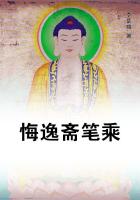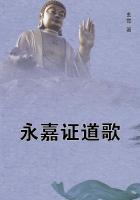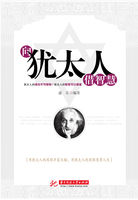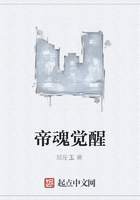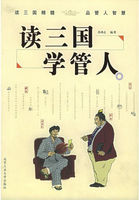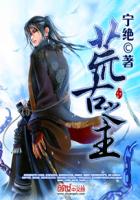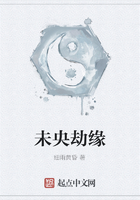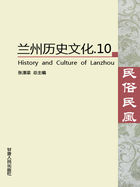Hero, who had undertaken the task of melting the heart of Beatrice, took no trouble to seek an occasion. She simply said to her maid Margaret one day, "Run into the parlor and whisper to Beatrice that Ursula and I are talking about her in the orchard."Having said this, she felt as sure that Beatrice would overhear what was meant for her ears as if she had made an appointment with her cousin.
In the orchard was a bower, screened from the sun by honeysuckles, and Beatrice entered it a few minutes after Margaret had gone on her errand.
"But are you sure," asked Ursula, who was one of Hero's attendants, "that Benedick loves Beatrice so devotedly?""So say the Prince and my betrothed," replied Hero, "and they wished me to tell her, but I said, 'No! Let Benedick get over it.'""Why did you say that?"
"Because Beatrice is unbearably proud. Her eyes sparkle with disdain and scorn. She is too conceited to love. I should not like to see her making game of poor Benedick's love. I would rather see Benedick waste away like a covered fire.""I don't agree with you," said Ursula. "I think your cousin is too clear-sighted not to see the merits of Benedick." "He is the one man in Italy, except Claudio," said Hero.
The talkers then left the orchard, and Beatrice, excited and tender, stepped out of the summer-house, saying to herself, "Poor dear Benedick, be true to me, and your love shall tame this wild heart of mine."We now return to the plan of hate.
The night before the day fixed for Claudio's wedding, Don John entered a room in which Don Pedro and Claudio were conversing, and asked Claudio if he intended to be married to-morrow.
"You know he does!" said Don Pedro.
"He may know differently," said Don John, "when he has seen what I will show him if he will follow me."They followed him into the garden; and they saw a lady leaning out of Hero's window talking love to Borachio.
Claudio thought the lady was Hero, and said, "I will shame her for it to-morrow!" Don Pedro thought she was Hero, too; but she was not Hero; she was Margaret.
Don John chuckled noiselessly when Claudio and Don Pedro quitted the garden; he gave Borachio a purse containing a thousand ducats.
The money made Borachio feel very gay, and when he was walking in the street with his friend Conrade, he boasted of his wealth and the giver, and told what he had done.
A watchman overheard them, and thought that a man who had been paid a thousand ducats for villainy was worth taking in charge. He therefore arrested Borachio and Conrade, who spent the rest of the night in prison.
Before noon of the next day half the aristocrats in Messina were at church. Hero thought it was her wedding day, and she was there in her wedding dress, no cloud on her pretty face or in her frank and shining eyes.
The priest was Friar Francis.
Turning to Claudio, he said, "You come hither, my lord, to marry this lady?" "No!" contradicted Claudio.
Leonato thought he was quibbling over grammar. "You should have said, Friar," said he, "'You come to be married to her.'"Friar Francis turned to Hero. "Lady," he said, "you come hither to be married to this Count?" "I do," replied Hero.
"If either of you know any impediment to this marriage, I charge you to utter it," said the Friar.
"Do you know of any, Hero?" asked Claudio. "None," said she.
"Know you of any, Count?" demanded the Friar. "I dare reply for him, 'None,'" said Leonato.
Claudio exclaimed bitterly, "O! what will not men dare say! Father,"he continued, "will you give me your daughter?" "As freely,"replied Leonato, "as God gave her to me."
"And what can I give you," asked Claudio, "which is worthy of this gift?" "Nothing," said Don Pedro, "unless you give the gift back to the giver.""Sweet Prince, you teach me," said Claudio. "There, Leonato, take her back."These brutal words were followed by others which flew from Claudio, Don Pedro and Don John.
The church seemed no longer sacred. Hero took her own part as long as she could, then she swooned. All her persecutors left the church, except her father, who was befooled by the accusations against her, and cried, "Hence from her! Let her die!"But Friar Francis saw Hero blameless with his clear eyes that probed the soul. "She is innocent," he said; "a thousand signs have told me so."Hero revived under his kind gaze. Her father, flurried and angry, knew not what to think, and the Friar said, "They have left her as one dead with shame. Let us pretend that she is dead until the truth is declared, and slander turns to remorse.""The Friar advises well," said Benedick. Then Hero was led away into a retreat, and Beatrice and Benedick remained alone in the church.
Benedick knew she had been weeping bitterly and long. "Surely Ido believe your fair cousin is wronged," he said. She still wept.
"Is it not strange," asked Benedick, gently, "that I love nothing in the world as well as you?""It were as possible for me to say I loved nothing as well as you,"said Beatrice, "but I do not say it. I am sorry for my cousin.""Tell me what to do for her," said Benedick. "Kill Claudio.""Ha! not for the wide world," said Benedick. "Your refusal kills me," said Beatrice. "Farewell.""Enough! I will challenge him," cried Benedick.
During this scene Borachio and Conrade were in prison. There they were examined by a constable called Dogberry.
The watchman gave evidence to the effect that Borachio had said that he had received a thousand ducats for conspiring against Hero.
Leonato was not present at this examination, but he was nevertheless now thoroughly convinced Of Hero's innocence. He played the part of bereaved father very well, and when Don Pedro and Claudio called on him in a friendly way, he said to the Italian, "You have slandered my child to death, and I challenge you to combat.""I cannot fight an old man," said Claudio.
"You could kill a girl," sneered Leonato, and Claudio crimsoned.
Hot words grew from hot words, and both Don Pedro and Claudio were feeling scorched when Leonato left the room and Benedick entered.


